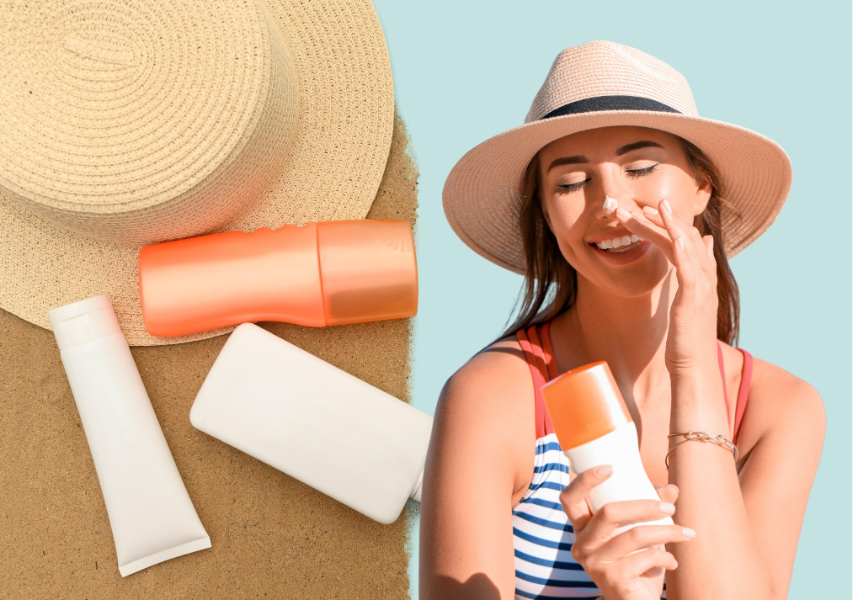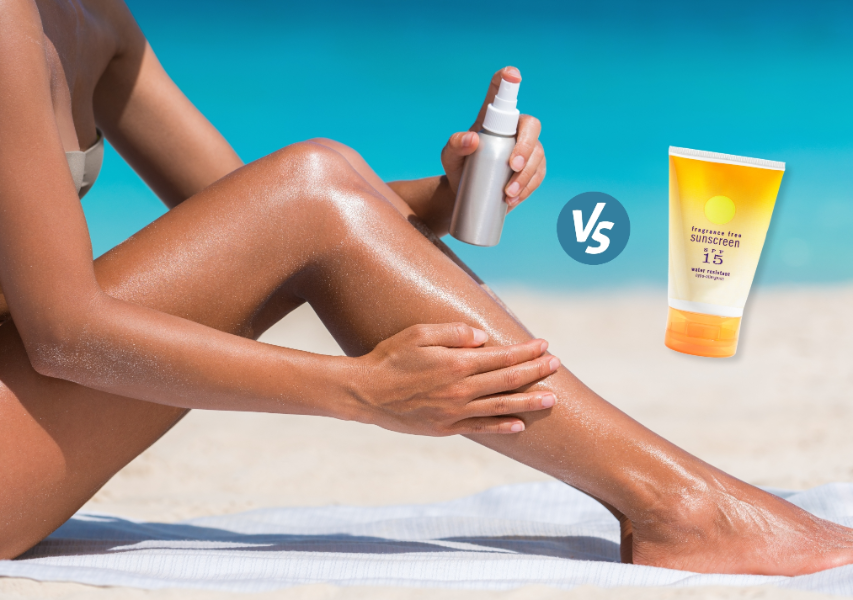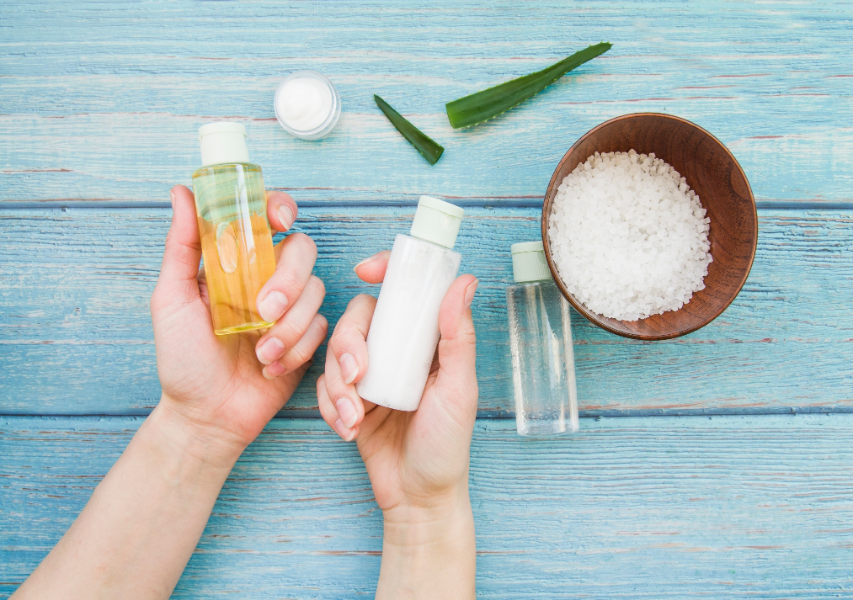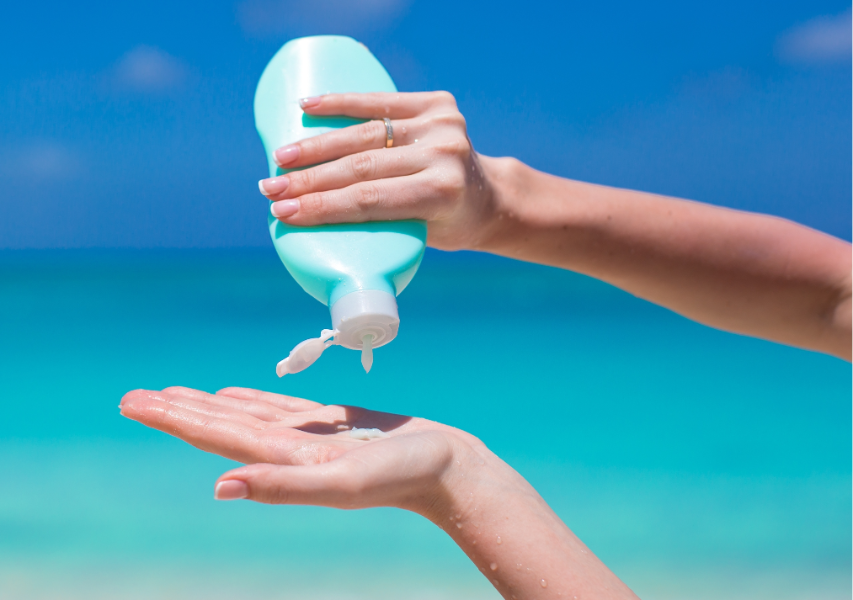
As the summer sun beats down, protecting your skin from harmful UV rays becomes paramount. But with concerns about the potential risks of chemical sunscreens, many people are turning to natural alternatives. If you’re on the hunt for safe and effective sun protection, look no further! In this article, we’ve rounded up the best natural sunscreens that will shield your skin while keeping it healthy and nourished.
Our carefully curated selection takes into account factors like ingredient quality, broad-spectrum protection, and ease of application. We understand that every individual’s skincare needs are distinct, so we’ve included options suitable for various skin types, from sensitive to oily to mature.
Whether you prefer lotions, creams, sticks, or sprays, our guide covers it all, ensuring you find the perfect natural sunscreen that fits seamlessly into your skincare routine. Say goodbye to the greasy residue and white streaks associated with conventional sunscreens, and say hello to a more enjoyable and safer sun protection experience.
To keep your skin glowing this summer, consider incorporating the best hydrating facial masks into your skincare routine.
Get ready to shield yourself naturally and enjoy the sunny days without worrying about harmful chemicals.
The Importance of Sunscreen for Skin Protection

Protecting your skin from the sun’s harmful ultraviolet (UV) rays is essential for maintaining healthy, youthful-looking skin. Exposure to UV radiation can lead to a multitude of skin concerns, including premature aging, wrinkles, age spots, and an increased risk of skin cancer. Sunscreen plays a crucial role in shielding your skin from these damaging effects, making it a vital component of any comprehensive skincare routine.
Sunlight contains two main types of UV rays: UVA and UVB. UVA rays penetrate deep into the skin, causing long-term damage and accelerating the signs of aging, while UVB rays are primarily responsible for sunburns. Wearing a broad-spectrum sunscreen that protects against both UVA and UVB radiation is crucial for providing comprehensive sun protection and maintaining the overall health of your skin.
Consistent use of sunscreen has been shown to reduce the risk of developing skin cancer, including the most serious form, melanoma. According to the Skin Cancer Foundation, regular use of sunscreen with an SPF of 15 or higher can reduce the risk of developing melanoma by 50%. This statistic highlights the importance of making sunscreen an integral part of your daily skincare routine, regardless of your skin type or time spent outdoors.
Beyond sunscreen, using anti-aging skin care products can further protect your skin from the sun’s aging effects.
Understanding Natural Sunscreens
As the awareness of the potential risks associated with chemical sunscreens grows, many individuals are seeking out natural alternatives that are gentler on the skin and the environment. Natural sunscreens, also known as mineral or physical sunscreens, work by reflecting and scattering UV rays away from the skin, rather than absorbing them like their chemical counterparts.
The key active ingredients in natural sunscreens are typically mineral-based compounds, such as zinc oxide and titanium dioxide. These minerals form a physical barrier on the skin’s surface, creating a shield that blocks both UVA and UVB rays. Unlike chemical sunscreens, which can be absorbed into the skin and potentially disrupt the body’s hormonal balance, natural sunscreens remain on the skin’s surface, making them a safer choice for those with sensitive skin or concerns about chemical exposure.
In addition to natural sunscreens, HydraFacial services in Arlington are a great way to maintain your skin’s health.
In addition to their physical sun-blocking properties, natural sunscreens often contain nourishing, skin-soothing ingredients like antioxidants, vitamins, and plant-based oils. These added components can help to hydrate, soothe, and protect the skin, providing a multifaceted approach to sun protection and overall skin health.
The Difference Between Natural and Chemical Sunscreens

The primary distinction between natural and chemical sunscreens lies in their mechanism of action and the type of active ingredients they contain. Chemical sunscreens work by absorbing UV radiation and converting it into heat, which is then released from the skin. These sunscreens typically contain a combination of synthetic chemicals, such as oxybenzone, avobenzone, and octinoxate, which can penetrate the skin and potentially disrupt the body’s endocrine system.
In contrast, natural or mineral sunscreens use physical, inorganic filters like zinc oxide and titanium dioxide to reflect and scatter UV rays away from the skin. These mineral-based ingredients sit on the surface of the skin, creating a physical barrier that blocks both UVA and UVB radiation. Natural sunscreens are generally considered safer and less irritating for those with sensitive skin, as they do not contain the same synthetic chemicals found in their chemical counterparts.
Another key difference lies in the environmental impact of these two sunscreen types. Chemical sunscreens have been linked to the bleaching of coral reefs and disruption of marine ecosystems, as their active ingredients can leach into waterways and oceans. Natural sunscreens, on the other hand, are generally considered more environmentally friendly, as their mineral-based formulas are less likely to contribute to these environmental concerns.
Common Ingredients in Natural Sunscreens

Natural sunscreens typically contain a variety of beneficial ingredients that not only provide sun protection but also nourish and care for the skin. Some of the most common and effective natural sunscreen ingredients include:
Zinc Oxide
A mineral that acts as a physical blocker, reflecting and scattering both UVA and UVB rays. Zinc oxide is known for its soothing and anti-inflammatory properties, making it a great choice for sensitive skin.
Titanium Dioxide
Another mineral-based active ingredient that works by reflecting and scattering UV radiation. Titanium dioxide is often used in combination with zinc oxide to provide broad-spectrum protection.
Antioxidants
Natural sunscreens may contain antioxidant-rich ingredients like vitamin C, vitamin E, green tea, and resveratrol. These components help to neutralize free radicals and protect the skin from oxidative stress caused by UV exposure.
Plant-based Oils
Sunscreens can be formulated with nourishing plant-based oils, such as coconut oil, jojoba oil, and shea butter. These oils can help to moisturize and soothe the skin while providing additional sun protection.
Aloe Vera
Known for its soothing and calming properties, aloe vera is a common ingredient in natural sunscreens, helping to alleviate any potential irritation or redness caused by sun exposure.
By incorporating these natural, skin-nourishing ingredients, natural sunscreens can provide comprehensive sun protection while also supporting the overall health and well-being of the skin.
Benefits of Using Natural Sunscreens

Switching to natural sunscreens offers a range of benefits for both your skin and the environment. Here are some of the key advantages of opting for a natural sun protection solution:
Reduced Skin Irritation
Natural sunscreens, with their mineral-based active ingredients, are generally less irritating and more gentle on the skin, especially for those with sensitive skin types or conditions like eczema or rosacea.
Hormone-Friendly Formulas
Many chemical sunscreens contain synthetic compounds that can potentially disrupt the body’s endocrine system. Natural sunscreens, on the other hand, are less likely to interfere with hormonal balance, making them a safer choice.
Environmental Sustainability
As mentioned earlier, the chemical ingredients in conventional sunscreens have been linked to the bleaching of coral reefs and other marine life. Natural sunscreens, with their mineral-based formulas, are considered more environmentally friendly and less harmful to aquatic ecosystems.
Broader Spectrum Protection
Natural sunscreens containing zinc oxide and titanium dioxide provide broad-spectrum protection, shielding the skin from both UVA and UVB rays. This comprehensive coverage is crucial for maintaining skin health and reducing the risk of sun-related skin damage.
Improved Skin Health
In addition to sun protection, natural sunscreens often contain nourishing ingredients like antioxidants, vitamins, and plant-based oils. These components can help to hydrate, soothe, and nourish the skin, contributing to an overall healthier complexion.
By embracing natural sunscreens, you can enjoy the benefits of effective sun protection while also supporting the health and well-being of your skin and the environment.
If you’re experiencing the effects of sun exposure, recognizing the signs of dehydrated skin can help you adjust your skincare routine.
How to Choose the Best Natural Sunscreen for Your Skin Type

Selecting the right natural sunscreen for your skin type is crucial to ensure optimal sun protection and overall skin health. Here are some key factors to consider when choosing the best natural sunscreen for you:
Skin Type
If you have sensitive skin, look for natural sunscreens formulated with gentle, non-irritating ingredients like zinc oxide, titanium dioxide, and soothing plant-based oils. For oily or acne-prone skin, opt for oil-free, non-comedogenic formulas that won’t clog pores.
SPF (Sun Protection Factor)
The SPF number indicates the level of protection against UVB rays. For daily use, a minimum of SPF 30 is recommended, while higher SPFs (SPF 50+) are suggested for extended outdoor activities or prolonged sun exposure.
Broad-Spectrum Protection
Choose a natural sunscreen that provides broad-spectrum protection, shielding your skin from both UVA and UVB rays. This comprehensive coverage is essential for maintaining skin health and reducing the risk of sun-related damage.
Texture and Finish
Consider the sunscreen’s texture and finish to ensure it aligns with your personal preferences and skin type. Some natural sunscreens have a thicker, more opaque consistency, while others offer a lighter, more fluid application. Opt for a formula that blends seamlessly into your skin without leaving a greasy or white cast.
Reef-Safe Ingredients
If you plan to use the sunscreen in or near water, look for formulas that are free of oxybenzone and octinoxate, as these chemical ingredients have been linked to the bleaching of coral reefs.
By taking the time to evaluate these key factors, you can find the best natural sunscreen that not only provides effective sun protection but also caters to your unique skin needs and preferences.
For optimal summer skincare, combining sunscreen with summer best skincare tips ensures comprehensive protection.
Tips for Applying and Reapplying Natural Sunscreen Effectively

Proper application and reapplication of natural sunscreen are crucial for ensuring maximum sun protection and achieving the best results. Here are some tips to help you get the most out of your natural sunscreen:
Apply Generously
When using natural sunscreen, it’s important to apply a generous amount to ensure even and adequate coverage. As a general rule, adults should use about one ounce (a shot glass full) of sunscreen to cover their entire body.
Spread Evenly
Take the time to spread the sunscreen evenly over all exposed areas of the skin, including often-missed spots like the lips, ears, around the eyes, and the neck.
Reapply Frequently
Natural sunscreens, like their chemical counterparts, need to be reapplied every 2 hours, or more often if swimming or sweating. Failure to reapply can leave your skin vulnerable to sun damage.
Use Enough
Make sure to use the recommended amount of sunscreen, typically about one-quarter to one-half teaspoon for the face and neck, and one ounce for the entire body.
Allow for Adequate Drying Time
Give your natural sunscreen a few minutes to dry and set on the skin before going out in the sun. This helps ensure the full SPF protection is achieved.
Pair with Other Sun-Protective Measures
While natural sunscreen is essential, it’s also important to complement its use with other sun-protective measures, such as wearing protective clothing, seeking shade, and avoiding peak sun hours.
By following these tips, you can ensure that your natural sunscreen provides the best possible protection and helps maintain the health and radiance of your skin.
Natural Sunscreen Myths Debunked

As natural sunscreens have gained popularity, several myths and misconceptions have emerged. It’s important to separate fact from fiction to make informed choices about your sun protection. Here are some common natural sunscreen myths debunked:
Myth 1: Natural sunscreens don’t provide adequate protection.
Fact: When formulated correctly, natural sunscreens containing zinc oxide and titanium dioxide can provide broad-spectrum protection that is just as effective as their chemical counterparts. These mineral-based filters are highly efficient at blocking both UVA and UVB rays.
Myth 2: Natural sunscreens are not water-resistant.
Fact: Many natural sunscreens are formulated to be water-resistant, providing continued protection even during water activities or sweating. The key is to look for products that are specifically labeled as water-resistant.
Myth 3: Natural sunscreens leave a white cast on the skin.
Fact: While some older formulations of natural sunscreens did leave a noticeable white cast, modern natural sunscreens have been developed to blend more seamlessly into the skin, minimizing the appearance of a white or chalky residue.
Myth 4: Natural sunscreens are not suitable for sensitive skin.
Fact: Natural sunscreens, with their gentle mineral-based ingredients, are often more suitable for sensitive skin types than their chemical counterparts. The lack of synthetic chemicals makes them less likely to cause irritation or allergic reactions.
Myth 5: Natural sunscreens are not as effective as chemical sunscreens.
Fact: When applied correctly and in the recommended amounts, natural sunscreens can be just as effective as chemical sunscreens in protecting the skin from harmful UV rays. The key is to choose a natural sunscreen with a high enough SPF and broad-spectrum protection.
By understanding and debunking these common myths, you can make informed decisions about incorporating natural sunscreens into your skincare routine and enjoy the benefits of safe, effective sun protection.
Conclusion: Embracing Natural Sunscreens for Healthier Skin
As the awareness of the potential risks associated with chemical sunscreens continues to grow, the demand for natural, safer alternatives has never been higher. By embracing natural sunscreens, you can shield your skin from the damaging effects of UV radiation while also supporting your overall skin health and the well-being of the environment.
The natural sunscreen options available today offer comprehensive sun protection, broad-spectrum coverage, and a range of skin-nourishing ingredients that can help to hydrate, soothe, and nourish your complexion. Whether you have sensitive skin, oily skin, or any other unique skin type, there is a natural sunscreen out there that can cater to your specific needs.
By following the tips and recommendations outlined in this article, you can navigate the world of natural sunscreens with confidence, ensuring that you find the perfect product to safeguard your skin and enjoy the sunny days without worry. Embrace the natural approach to sun protection and experience the benefits of healthier, more radiant skin.
Remember, protecting your skin from the sun’s harmful rays is not just about vanity – it’s a crucial step in maintaining your overall skin health and reducing the risk of long-term sun-related damage. So, shield yourself naturally and let your skin thrive, no matter the season or the weather.
